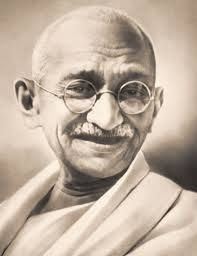Who does not know
about the Shah Rukh Khan, Aishwarya Rai, Madhuri Dixit starrer Bollywood blockbuster DEVDAS based on Sharat Chandra Chatterjee's
Bengali Novel of same title where Shah Rukh Khan played the lead role of Devdas?
But had it
been the first time that
Devdas of Sharat Chandra was transformed into another form of
captivance, from literary words to words
of pictures, captured in the tiny frames of celluloid. If we look back into the
history of Indian Cinema Devdas was first filmed in the year 1935 in Bengali.
The lead role of Devdas was played by a newbie in the arena of Indian Film
Industry who changed the face of Indian Cinema. This aficionado gentleman was
no one else but Pramathesh Baruah who hailed from Gauripur of
Assam. A 1924
Bachelor of Science, graduated from Presidency College of Calcutta, had his
schooling done at Hare School, Calcutta, was born on October 24, 1903 to Raja Prabhat Chandra Baruah of the Gauripur royal family, the Zamindar of
Gauripur of Assam. After completion of graduation he went to Europe where he
got his maiden exposure to film making. Returning home he served as legislator of Assam Legislative Assembly
in1928. He was selected once again in 1930 and was offered a ministerial post
which he refused to accept and joined the Swaraj Party of Chittaranjan Das. But
this gentleman who already had the taste of the exotic world of film making
left the field of politics and finally moved to Kolkata to begin a career in
film industry. Pramathes Barua's father Raja Prabhat Chandra Baruah was much
annoyed at this act of his son. By then Dhirendranath Ganguly, Dada Saheb Falke
Award winner, popularly known as DG had to leave Hyderabad following order of
Nizam who was enraged because of portrayal of a Muslim princess who fell in
love with a Hindu in the film Razia Begum. DG was the distributor of this film.
Returning to Kolkata DG formed his third film production company British
Dominion Films. Pramathesh Barua invested some amount in this company. Pramathesh
Barua went to London to learn more about movie making. Moved to Paris for
procuring lighting equipments and then came back to Kolkata to start his film
production company Barua Pictures Limited. Here DG also joined Pramathesh Barua.
It's first major production was "Aparadhi" in 1931, followed by
another film "Bhagyalakshmi",1932. Aparadhi, directed by Debaki Bose,
starred Pramathesh Barua. In Bhagyalakshmi Pramathesh played the role of a
villain. But before late both DG and Pramathesh joined B.N. Sircar's New
Theatres.Devdas, a romantic film based on Saratchandra
Chatterjee’s novel was a production of New Theatres in Bengali in 1935. It was directed by Pramathesh Baruah
and he himself played the role of Devdas. His third wife Jamuna Baruah played
the role of Parvati(Paro). It was a He then did a remake of the same film in
Hindi with Kundanlal Saigal in the lead role in 1936.
This Hindi version of
Devdas became incredibly successful throughout India and Pramathesh Baruah
became one of the top notch Indian Cinema Directors. Devdas essentially brought
revolution to Indian Cinema and changed the look of social melodrama in cinemas
with his unique treatment towards it. In Devdas he did not follow the contemporarily
prevalent style of presentation and kept off the trend of extreme theatricality
in acting and dialogue delivery. Rather he opened up a new avenue of natural
style of acting impervious of stereotype melodrama. Pramathesh Baruah had exposure to
European naturalistic trends in cinemas and that perhaps had been influencing
factor to adopt a style of dialogue
which is somewhat like speaking in real life. Thus Pramathesh Baruah had been
able to make Devdas a decent tragedy.Devdas
was released on 26 April 1935 at Chitra Talkies. It was an instant all time Box
Office Hit and it turned Pramathesh into a star overnight. Pramathesh created
the climax of Devdas in a different way which was not present in Saratchandra's
origin novel. Having seen Devdas Sarat Chandra said to Pramathesh -"It
appears that I was born to write Devdas because you were born to
recreate it in cinema."
This legendary film director and actor and one of successful great Assamese died in the year 1951 at the age of 48 making Devdas a folk hero. He said-"No one has the right to live beyond the age of 50".








